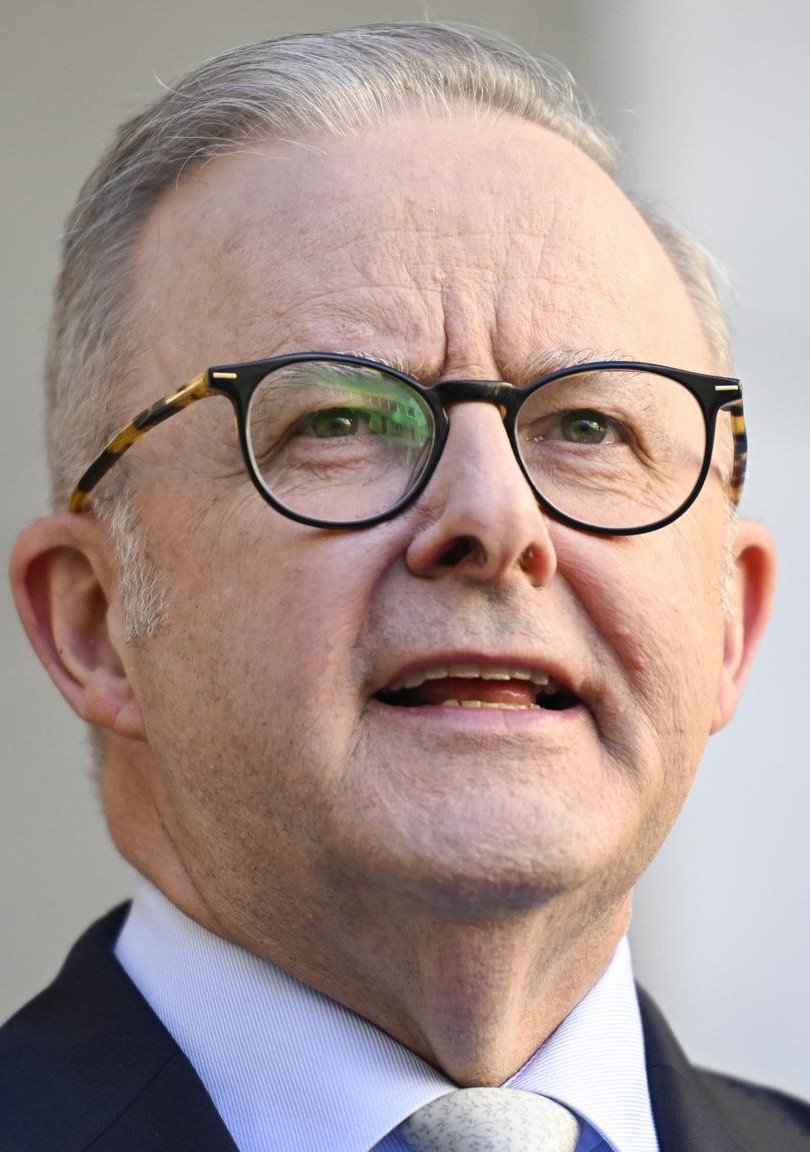JENI O’DOWD: Every super policy shift sends the message Australians’ retirement savings are fair game
JENI O’DOWD: Successive governments have turned superannuation into a political plaything. The rules change constantly. Caps move. Taxes creep in. Definitions shift. It’s become a system built on sand.

Ironically, the most clear-eyed commentary coming out of the Liberal Party right now is from women — the very group the party has historically struggled to elevate or retain.
New Opposition Leader Sussan Ley worked behind the scenes to stop the Coalition from splitting — what a disaster that would have been — and Michaelia Cash cut through the political fog with another sharp attack on Labor’s flawed superannuation policy.
While Labor’s superannuation plan is rightly copping flak from economists, investors and anyone with a grasp of long-term risk, it’s been Liberal women doing the heavy lifting.
Sign up to The Nightly's newsletters.
Get the first look at the digital newspaper, curated daily stories and breaking headlines delivered to your inbox.
By continuing you agree to our Terms and Privacy Policy.Jane Hume has led the charge in exposing the unintended consequences of taxing unrealised gains, and Michaelia Cash has gone after governance failures in union-linked super funds.
Compare that to Nationals leader David Littleproud, who spent the week after the election trying to blow up the Coalition entirely — demanding shadow cabinet exemptions, destabilising Sussan Ley while she was grieving her mother and staging a performative “split” he later backed away from.
It was politics at its most self-serving. And it only highlighted Ley’s steadiness — and the calibre of the people left in the Liberal ranks.
What a total douchebag. To behave like that while your colleague is grieving — to pressure her, undermine her and drag the Coalition into headlines again after such a bruising loss is indefensible.
Littleproud showed zero emotional intelligence, zero compassion and zero political instinct.
Only a bad politician would pick a public fight with the leader of his own side when she is about to plan a funeral.
At least one Coalition figure decided to fight the right battle. Speaking in Perth at the recent WA Liberal State Council meeting, Michaelia Cash labelled Labor’s superannuation policy “one of the worst taxes ever dreamed up”.
She warned that Labor was “salivating” at the prospect of raiding Australians’ nest eggs and called it an “insidious form of taxation”.
And she is right. Super is meant to be a stable, bipartisan pillar of national policy. Instead, it’s become another battlefield for Labor and the Greens to attack wealth and score political points by going after “the rich” — even if it undermines long-term confidence in the system.
Superannuation was once sold as a golden ticket: work hard, contribute regularly and the system will look after you.
But successive governments, including the Coalition, have turned superannuation into a political plaything. The rules change constantly. Caps move. Taxes creep in. Definitions shift.
It’s become a system built on sand, and the consequences for Australia’s ageing population are serious.
Labor’s proposed tax on unrealised gains in super accounts over $3 million is the latest example.
Yes, most Australians don’t have balances that high, but the principle matters. This policy changes how gains are calculated. It applies tax before income is even realised. And once that line is crossed, what’s next? $2 million? $1 million?
The message it sends is clear: your retirement savings are fair game.
Philip Lowe, former Reserve Bank governor, and Ken Henry, ex-Treasury secretary, have publicly condemned the policy.
They argue that taxing unrealised gains is not sound economic policy and suggest alternative approaches, such as providing a tax rebate based on marginal tax rates.
Scott Phillips, Motley Fool’s chief investment officer, was blunter, telling Sky News the policy was “reckless, silly and stupid”.
According to the ABS, more than 4.4 million Australians are aged 65 and older, and by 2041, that number is projected to be more than 6.7 million, about one in five people.
Life expectancy continues to rise, and according to Treasury projections, the population aged 85 and older will more than double by 2060.

We are rapidly becoming an older nation, yet governments continue to use our retirement system as a political tool.
Anthony Albanese didn’t spring this policy on Australians out of nowhere. Labor went to the Federal election with a clear proposal to tax super balances over $3 million, and despite that, voters handed him another term.
That result says as much about the Coalition’s poor campaign as it does about the policy itself.
Why did the Coalition remain mainly silent on this issue during the campaign?
Voters were not told what was at stake. Or perhaps, more worryingly, how it could affect them.
By the time people realise governments rarely stop once they start taxing “the rich”, it’s too late.
Just ask the retirees blindsided by Bob Carr’s so-called “millionaires’ tax” — people who never imagined their long-held family homes would push them into the firing line.
In 2004, the then NSW premier expanded land tax in a move pitched as targeting wealthy property owners.
But the changes captured far more than investors. Homeowners in Sydney’s inner suburbs, whose properties had risen in value, were suddenly hit with steep annual tax bills — not based on income, but on soaring land values rather than actual income.
Retirees were forced to sell their homes just to cover a tax on paper wealth they had no intention of accessing.
Carr eventually had to reverse the policy, but not before it damaged real lives and exposed just how blunt and dangerous asset-targeted taxes can be.
Older Australians don’t have the luxury of time to pivot. If you’re 65 and planning to draw down your savings over 20 years, you can’t “wait and see” if a new government will reverse the latest change.
Younger workers watching all this unfold are right to wonder whether a solid system will be available for them at all.
We need a bipartisan agreement to lock down the basic architecture of super for the next 10 to 15 years.
No new taxes. No surprise reforms. Just clarity. Set the rules and stick to them.
Because a retirement system based on shifting goalposts doesn’t just fail retirees, it fails everyone.
